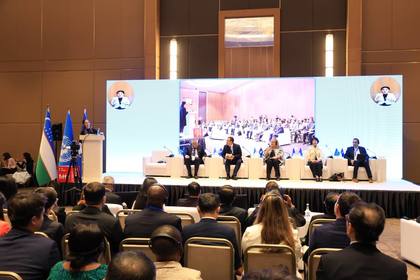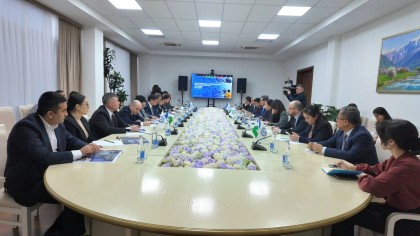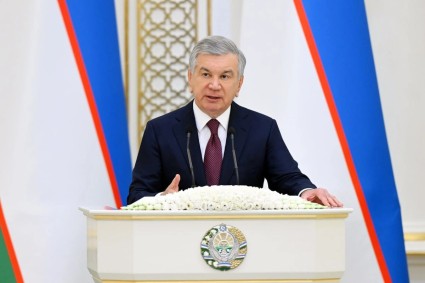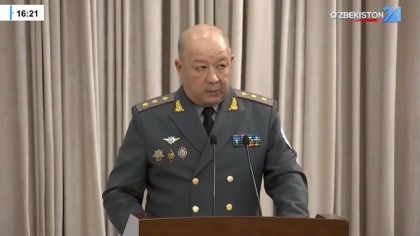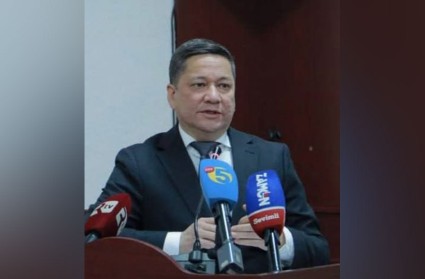Today in Tashkent, the 9th Annual Meeting of the Multidimensional Poverty Peer Network (MPPN) commenced. This event brings together global leaders, policymakers, economists, and experts from 63 countries and over 20 international organizations to deliberate on key issues in the fight against poverty.
Over the course of this three-day forum, participants will have the opportunity to exchange insights on national experiences and international best practices in poverty alleviation.
The Center for Economic Research and Reforms (CERR) and the Agency for Mahallabay Work and Entrepreneurship Development, with support from the United Nations Development Programme (UNDP) in Uzbekistan and the Oxford Poverty and Human Development Initiative (OPHI), are the organizers of this international forum.
The selection of Uzbekistan as the host country underscores the international community's recognition of the significance of the ongoing reforms aimed at a profound understanding and measurement of multidimensional poverty for more effective combat. It also opens new horizons for the exchange of experiences.
Ravshan Gulyamov, Advisor to the President of the Republic of Uzbekistan on Economic Development, read out the Address of the President of the Republic of Uzbekistan Shavkat Mirziyoyev to the participants of the 9th Meeting of the Multidimensional Poverty Peer Network.
The Address emphasized that improving the living conditions of every citizen, increasing the volume and quality of education and healthcare services in the New Uzbekistan, is the primary focus of current reforms. An investment of about $2.5 billion in enhancing kindergartens, schools, hospitals, and infrastructure in mahallas serves as a strong indicator of this commitment.
The President underscored the importance of strengthening social protection for the population, particularly in low-income families. To this end, the National Agency for Social Protection and "Inson" centers have been established, reaching over 2.3 million families, a fourfold increase compared to 2017. Notably, the lives of 3 million people in the country have improved over the past three years, while the poverty rate has decreased from 17% to 11%.
In closing the Address, confidence was expressed that the expert dialogue within the framework of this Forum would be fruitful, and the practical proposals and recommendations developed as a result would mark a new step in reducing global poverty.
The participants of the Meeting were also addressed by the Director of the National Agency for Social Protection, Mansurbek Olloyorov, the Minister of Employment and Poverty Reduction of the Republic of Uzbekistan, Behzod Musayev, Professor of Economics and Director of the Oxford Poverty and Human Development Initiative, Sabina Alkire, the UN Resident Coordinator in Uzbekistan, Sabine Machl, the UNDP Resident Representative in Uzbekistan, Akiko Fujii, and the Director of MPPN, Gonzalo Hernandez Licona.
Welcoming the participants, the Director of CERR, Obid Khakimov, noted the importance of combating multidimensional poverty in Uzbekistan and other developing countries.
"Today, we have a unique opportunity to exchange ideas and experiences on such an important topic as multidimensional poverty. We have gathered here to work together on solutions that can change the lives of millions of people around the world," said the head of CERR.
“The MPPN meetings bring together a committed community of decision-makers and senior officials thinking deeply about how to turn a corner on poverty. In trying times, the importance of these spaces for inspiration and precise knowledge exchange cannot be overestimated” said Sabina Alkire, Director of the Oxford Poverty and Human Development Initiative, which serves as Secretariat of the MPPN.
Currently, Uzbekistan is implementing the concept of multidimensional poverty by carrying out a project to measure the Multidimensional Poverty Index with support from UNDP. This event marks a significant step towards achieving the Sustainable Development Goals and reaffirms our commitment to international standards in the fight against poverty.
“UNDP works closely with countries to implement policies that truly make a difference in people’s lives. This includes creating jobs and boosting skills, improving infrastructure and market access, and diversifying local economies by supporting small businesses and providing access to credit. By focusing on community-driven development, we can tackle poverty from multiple angles and create lasting change,” - highlighted in her opening remarks Akiko Fujii, UNDP Resident Representative in Uzbekistan.
The event featured presentations by Dr Ali Haidar Ahmad, Minister of Housing, Land and Urban Development in Maldives, by Dr. Liu Juwen, Director General of the International Poverty Reduction Center in China (IPRCC), Ricardo Landero, Vice Minister of Social Development of Panama, R.H.W.A. Kumarasiri, Director General of the Department of National Planning of Sri Lanka, and Areef Suleman, Group Chief Economist, Islamic Development Bank.
During the forum, participants shared experiences and results aimed at improving poverty reduction strategies on a global level. In particular, each presentation enriched the dialogue and provided new tools for work. Important topics were discussed, such as the use of the Multidimensional Poverty Index for national programs, innovations in poverty measurement, and the need for regional cooperation. These discussions deepened understanding and strengthened the bonds of the community striving to improve people's lives.
On the third day of the forum, a practical field trip to Samarkand is expected, where participants will be able to study the Uzbek experience on the ground, including the "mahallabay" system, which actively operates at the local community level.

